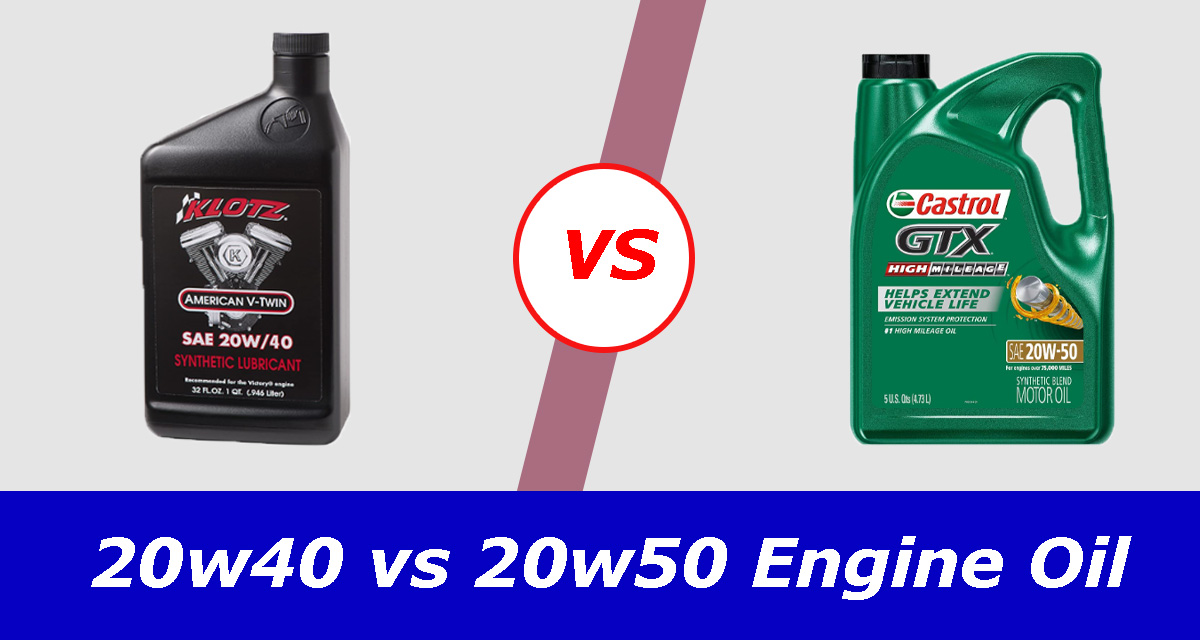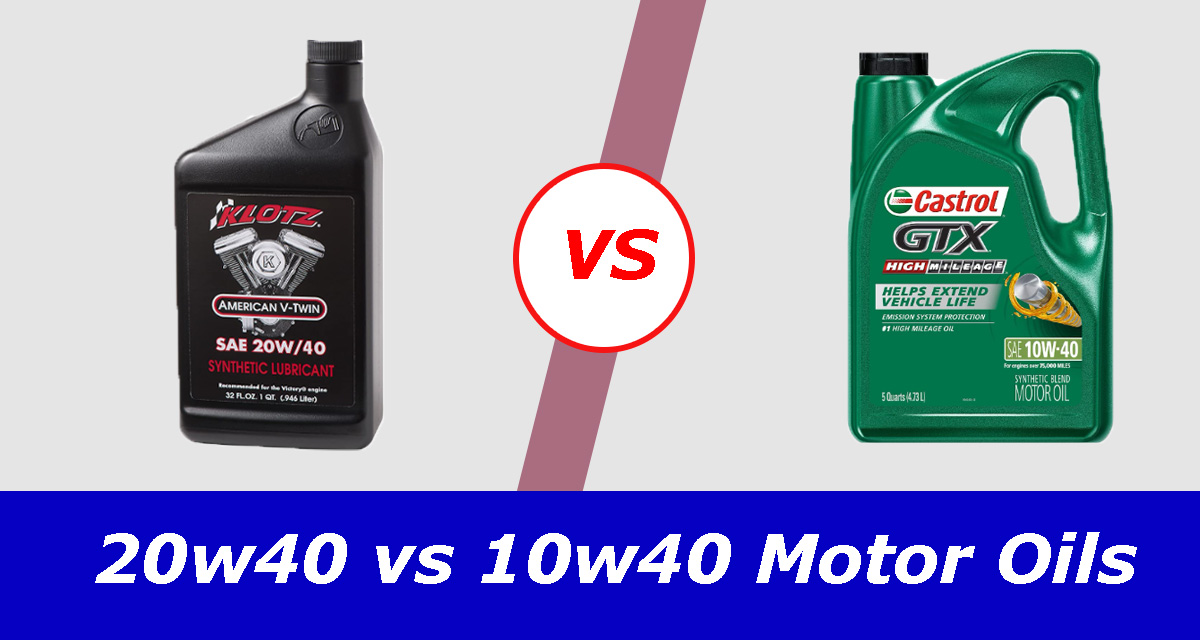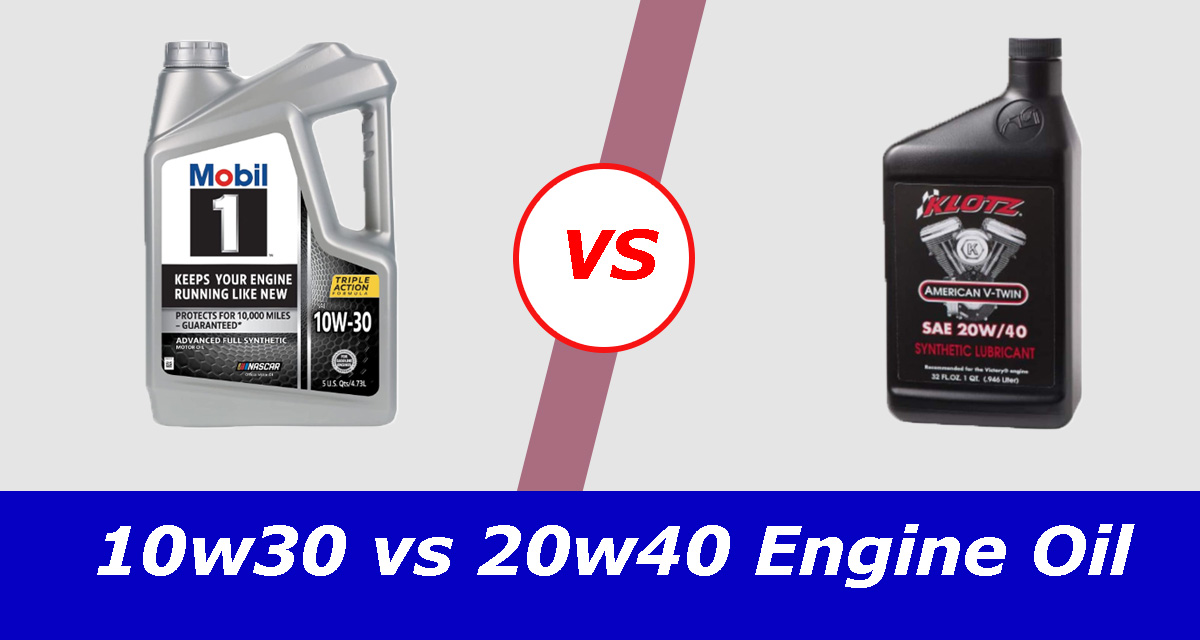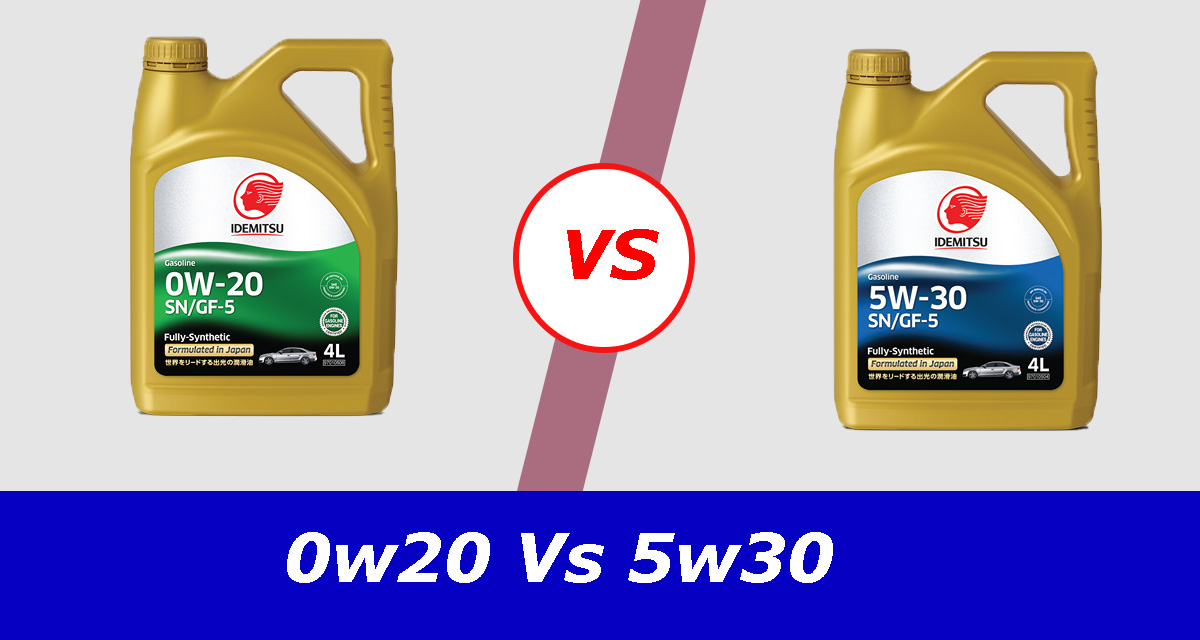Ascertaining the viscosity of a lubricant at a certain temperature is facilitated by standards for engine lubricants. Many of the information decides if the engine oil will function efficiently and smoothly.
Nevertheless, several parts of these criteria may appear unclear. Such as utilizing 20w40 or 20w50 motor oil in your car or motorcycle. Therefore, it is useful to understand the specifics of what these grades signify and how they differ from one another.
When it comes to utilizing engine oils for your motorcycles or automobiles, there are several factors to consider. This article highlights the major difference between 20w40 and 20w50.
Comparison Table Between 20w40 and 20w50
| Comparative Parameters | 20w40 | 20w50 |
| Density | Thicker | Thicker |
| Kinematic Viscosity | 16.9mm2/s | 18.0mm2/s |
| Performance | Good at Hot and Cold | Good at Hot |
| Mileage | Long | Poor |
| Feature | Less Fuel Consuming | More Fuel Consuming |
Differences Between 20w40 and 20w50

- In contrast to 20W50, which is more ideal for hotter temperatures, 20W40 may be used in hotter temperatures without producing sludge. It’s because 20W40 has a lower viscosity.
- When it comes to high mileage, 20W40 is not a superior choice to 20W50.
- 20w50 maintains its flowability even at 5 degrees Fahrenheit, making it ideal for use in the winter. 20w40, on the other hand, is a multigrade oil that functions effectively in temperatures as low as -15 degrees Fahrenheit.
- 20w40 uses less fuel whereas 20w50 requires more fuel for the same amount of work.
When Should I Use 20w40?
In comparison to 20W50, which is more ideal for hotter temperatures, 20W40 may be used in hotter regions without producing sludge. This is because 20W40 has a lower viscosity. However, it has a greater number of downsides than 20w40. For instance, in a climate with a lower average temperature, it will only pass two or three chilly starts, but not any more than that.
In addition, 20w40 is mostly used for driving over long distances. Because it consumes less gasoline. Therefore, if you travel long distances, you should use 20w40 motor oil for your own safety.
When Should I Use 20w50?
A typical kind of motor oil, 20W-50 is utilized in gasoline and diesel engines ranging from moderately big to extremely large, high-performance motorcycle motorcycles, and aviation vehicles. Due to the fact that it does not become thinner at high temperatures, it is widely used as a racing oil and for high-temperature driving.
20W-50 motor oil designated as is normally reserved for usage in older cars or in regions with very warm weather. Even when the engine is subjected to extremely high temperatures, its ability to remain clean and free of sludge thanks to this product’s tailor-made formulation will help your engine last longer.
FAQs About 20w40 vs 20w50
Why do Engines that use 20W40 Oil Give Better Performance?
The 20w40 oil has a built-in cleaning mechanism that assists in cleaning and managing the buildup of sludge. This feature also helps clean the engine. In addition to this, it removes dirt deposits from the various components of the engine, which helps to maintain the engine’s high level of functionality.
Is 20W50 good for petrol engines?
The answer is yes, although often just for gasoline or petrol-powered vehicles. Because gasoline engines operate at greater temperatures, they require oil with a somewhat thicker viscosity grade.
Oil with a weight and viscosity grade of 20w50 is often only found in very old gasoline engines; never use it in a newer vehicle’s motor, and instead follow the owner’s manual’s advice for the type of oil to use.
Final Notes
This blog shows the major comparison of 20w40 vs 20w50. In contrast to 20W50, which is more ideal for hotter temperatures, 20W40 may be used in hotter regions without producing sludge.
This is because 20W40 has a lower viscosity. However, it has a greater number of downsides than 20w40. For instance, in a climate with a lower average temperature, it will only pass two or three chilly starts, but not any more than that.
This article will provide you with the information you need to make an informed decision between 20w40 and 20w50. Despite the fact that, in terms of performance, it appears to be comparable, there are significant differences between this two, as we have shown in this blog.




